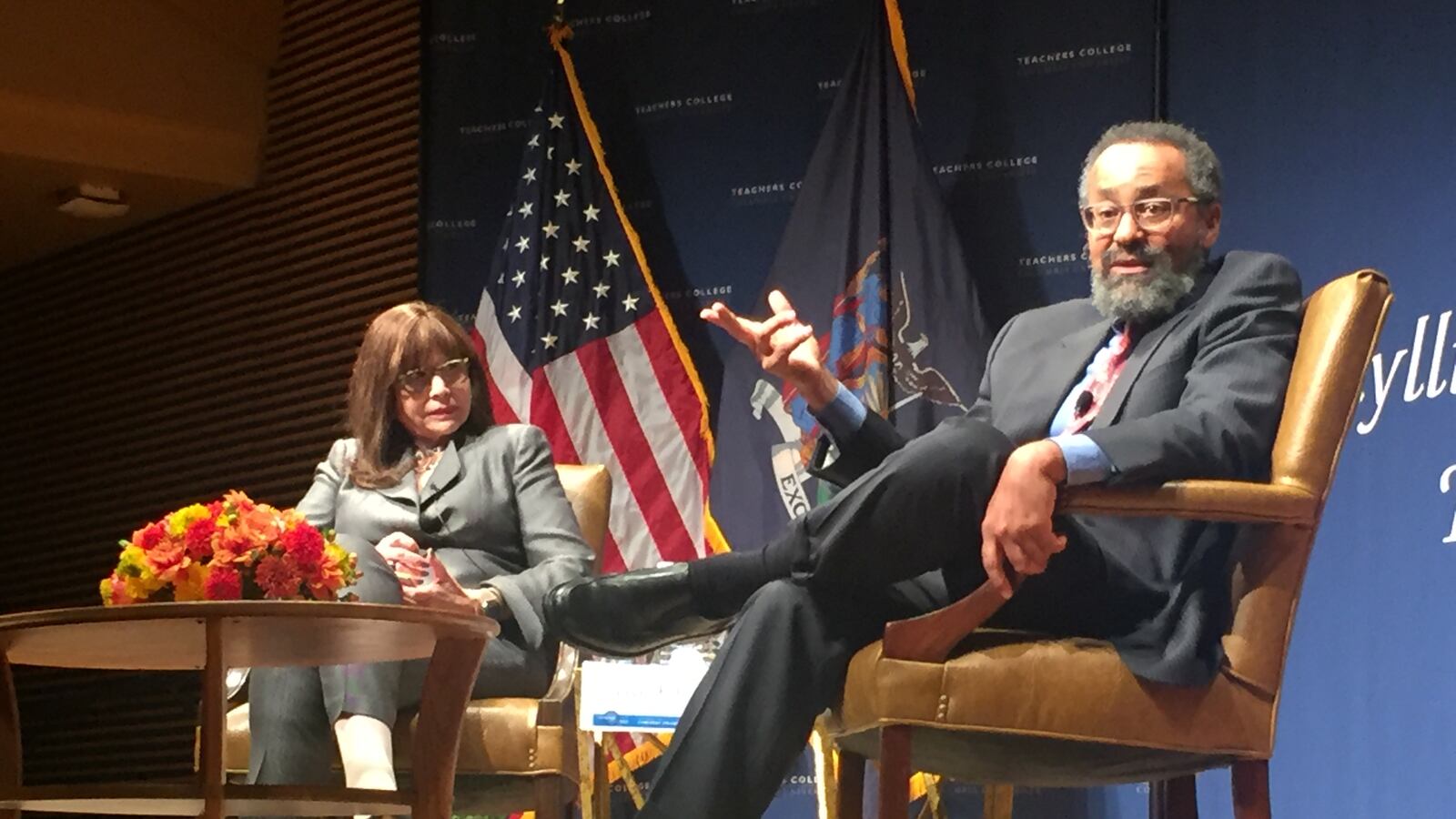A senior policy advisor to the Hillary Clinton campaign channeled the Democratic presidential candidate at an intimate question-and-answer session on Thursday hosted by Teachers College at Columbia University.
Christopher Edley, Jr. — a former U.C. Berkeley School of Law dean and expert in civil rights and education policy — talked about charter schools, early childhood education, and how to better serve English Language Learners.
He also hinted at a different kind of accountability era under a Clinton administration.
“She believes that there’s been, over the last 20 years, too much attention to trying to hold students and teachers accountable — and not enough emphasis on holding accountable the people who hold ultimate responsibility for the investments and for policy design,” Edley said, drawing applause.
The Donald Trump campaign did not respond to an invitation to join the forum, according to Teachers College.
Here are some other highlights from Edley’s remarks.
On charter schools:
Clinton supports charters, “but there are very important caveats,” Edley said.
“She believes we should … get back to one of the principal purposes of charters, which was to innovate and then export successful innovations to the rest of the public school system. We just haven’t done that,” he said. “Let’s be much more intentional about exporting the successes, and about closing down the charters that are not performing up to expectations.”
Edley didn’t express a position on the NAACP’s proposed moratorium on charter school expansion — something the New York Times, Wall Street Journal and New York Post all editorialized against this week.
Charter school supporters have battled New York City and the state over the right to expand. At the end of September, 25,000 people rallied in Brooklyn, calling for the state to lift its charter school cap.
In June, the pro-charter group Families for Excellent Schools released a report arguing New York City could co-locate more charters inside traditional public school buildings. City officials disputed the report, saying it didn’t take into consideration the types of spaces available within schools, or future growth projections.
On early education:
Clinton “knows the research” when it comes to early childhood education, and has called for a doubling of spending on federal Early Head Start and Head Start programs, Edley said.
“We don’t, by any means, have a comprehensive system at either the federal level or the state level. It’s a crazy quilt of initiatives — some evidence-based, some only intuition-based,” Edley said. “One of the things I know she wants to do as president is help draw forward a consensus, a national consensus, about how to make our investment in early childhood … more systemic.”
He said home visit programs for new mothers — where social workers and health professionals check in and provide guidance — could get a boost under a Clinton administration.
Early childhood education in New York City has been in the national spotlight. Under Mayor Bill de Blasio, the city launched free universal preschool. The program has proven popular with parents and earned high marks on quality measures.
On English Language Learners:
Edley said policy reform for how English Language Learners are taught would be “one of the top five assignments for the new secretary of education” under a Hillary Clinton administration.
“She is very frustrated, and indeed, angry, about the lack of progress in narrowing the achievement disparities and attainment disparities between English Language Learners and others,” Edley said.
In New York City, more than 142,000 students — about 13 percent of the student body — are English learners. Only 41 percent of the city’s ELL students graduate in four years and 22 percent drop out, according to the most recent city stats.
On state exams, 4 percent of ELL students were proficient in reading last year; in math, 13 percent were proficient.
“There is no consensus on how to replace the current framework for holding schools and districts and states accountable for narrowing these disparities. There’s no consensus even among, let’s say, the Latino civil rights groups, about what they would advocate as a wholesale reform structure,” Edley said. “So, as president, she would like to be a part of brokering that new consensus about a more ambitious and effective English Language Learner strategy.”


